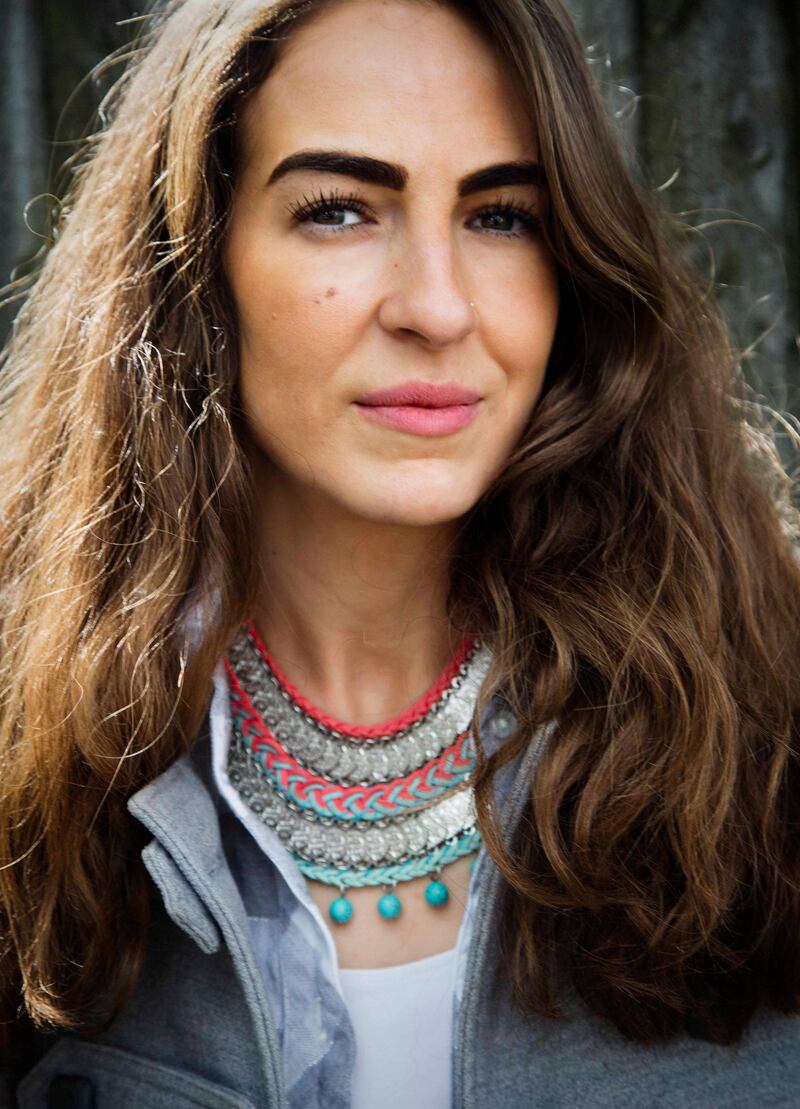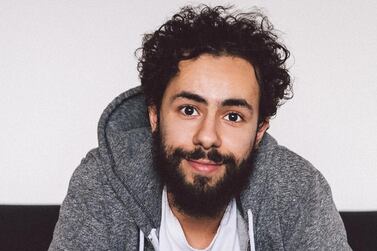"Art is not a mirror held up to reality but a hammer with which to shape it," playwright Bertolt Brecht once said. Perhaps this is especially pertinent to the work of Lebanese-British comedian Esther Manito. There is art and method in her comic madness.
Manito's new solo show, Crusade, takes aim predominantly at anyone with the arrogance and impudence to feel they can impose their divisive and degrading ideologies on others.
Given the concerning rise of far-right political and extremist religious leaders and their followers in the West and throughout parts of the Middle East, Manito’s show is a refreshing, necessarily irreverent and reliably hilarious set.
Time to snap back
Manito has just completed her third, hour-long gig of the day, this one part of London’s Vault Festival. Though exhausted, the energy, buzz and laughter seem to have propelled her through the routine. “It’s still very much a work-in-progress,” she says, stepping outside of her stage persona. “I want to get it slicker and more together. Based on feedback, I keep redrafting it, but I’m getting there. I feel like the narrative is getting stronger.”
She is working to finalise Crusade in the run up to a month of gigs at Edinburgh's Gilded Balloon this summer, part of the Edinburgh Fringe Festival. It's an event that has transformed the careers of a long and dazzling list of comedians – Dylan Moran, Peter Kay, Rhona Cameron, Bill Bailey and many more. The theme and a significant part of Crusade stem from an uncomfortable, but presumably formative, experience Manito had doing a gig last year "in the middle of nowhere".
“As I turned up I realised I had been booked for totally the wrong gig,” she says in her routine. “Because I walked in and I saw all the decor of Union Jacks and England flags. I saw a huge number of skinheads and I realised I was in fact in an EDL [English Defence League – a far-right, Islamophobic group] pub. So I was like, ‘Oh my god’”.
It's this experience that sets the stage for Manito's diatribe against those who feel it is their duty and right to pigeonhole people to fit their racist, ideological constructs, and to tell them what they should or shouldn't do – from alt-right supporters, religious clerics and national leaders, right down to opinionated, meddling parents whose kids attend the same school her two kids go to.
“Maybe we all need to start snapping back at those people who want to crusade against us. I’m not a confrontational person, but maybe just a little bit of confrontation, a little bit of response, wouldn’t do any harm,” she tells the audience. And, boy, does she snap back.
Early life
Identity, from an early age, was something Manito was very conscious of. She grew up in "a really, really, English town" – Saffron Walden, in Essex – the daughter of a Lebanese father and a mother from Gateshead in the north of England.
Her parents moved from Lebanon in the early 1980s as the situation became tense between Lebanon and Israel, and Manito was born in England in 1982, the year the Lebanese-Israeli-conflict erupted.
“My dad rocked up in Saffron Waldon in the ’80s. In his mind he was still in 1960s Beirut,” she says. “I was very conscious of the fact that my dad was different. That made me go through phases of really wanting to cling to one identity or another because nobody I knew was mixed, nobody had any connection to anything outside of this small town.
“I became really protective of my dad and obsessed with this side of my identity – ‘I’ll marry a Lebanese man, I’ll be a practising Muslim’ and so on – I felt the whole shebang. It took a really long time for me to be OK with being British-Lebanese, and being really happy that I was born here. I am really glad that I’m from here, and that I have Lebanese heritage. I love everything about it. I visit Lebanon a lot and feel I’ve won the lottery in life: I have these great two cultures that I come from. But it took a long time to realise that,” she says.
Manito tells a particularly moving and surprising story in Crusade about her Lebanese grandmother, a story that has always stayed with her, she tells the audience. The rooftop of her grandmother's family home in Lebanon was occupied by Israeli soldiers during the war in the 1980s, and one day a young Israeli soldier knocked on the door and asked for a glass of water. Manito's great-aunt shut the door on him. Her grandmother, she says, then exploded.
“That boy is somebody’s son, and his mother doesn’t know where he is, if he’s safe or if he’s OK,” her grandmother railed. We’re going to bring him into this house and feed him, and we’re going to make sure that he sees that we are human beings. It doesn’t matter if he sees us as Muslim or Arab, we are human. And maybe, just maybe, that might change how he behaves when he has a gun in his hand.”
Normalising the word 'Arab'
This story leads to the show’s crescendo, which manages to be both wildly funny and very touching. In each of the three or so strands that shape the narrative, Manito’s caustic wit has no trouble exposing the ignorance and racism at the heart of far-right and extremist political and religious group ideologies.
But in each group there are individuals – an EDL skinhead, two veiled women in the audience at Manito's landmark gig at Dubai Opera last July, and a "sarky", passive aggressive mum whose son is in the same nursery class as Manito's son – who ultimately share a connection with Manito. This identification affirms what they have in common. And clearly shows that Manito shares an awful lot with her paternal grandmother.
"It's about trying to see the human element, not the divisions," Manito tells me. "Whether she wears a hijab or doesn't, whether she drinks or she doesn't, whether she's a mum or she isn't – we just need to look at people more in that human way. I don't have to be rejecting every other part of myself and hangin' a Union Jack outside my house for me to be a British Arab mum who's proud of that.
“Sometimes I really enjoy saying the word ‘Arab’ on stage because I’m normalising it; or other comedians who say they’re Muslim or Middle Eastern and I think: let’s say ‘Arab’ and normalise it and take the fear factor out of it.”
Manito's crusade-busting show – artfully done with a Brechtian hammer – has a huge amount of substance beyond the laughs , which make it well worth seeing.






